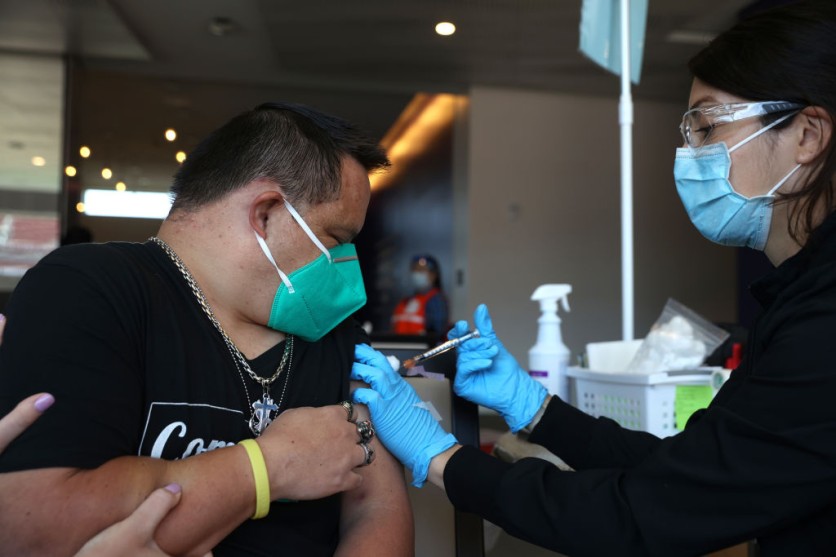Conspiracy theories about COVID-19 have spread like a virus in social media. One of which is claiming that the vaccine is meant to implant microchips in the body to control everyone via the 5G network.
To prove it, conspiracy theorists used magnets in a social media video challenge called the Covid vaccine magnet challenge. However, scientists via Newsweek are debunking this trend, as some people are buying it. Moreover, the bandwagon spread like Covid on Twitter and TikTok.

The video shows people placing magnets on their arms after receiving a Covid vaccine. And seemingly, it appears to stick to the jabbed human body part.
Does this prove the veracity of claims of microchip conspiracy theories? Experts said it was not possible.
Is it Magnetic?
Vaccines don't contain magnetic materials in their ingredients, Edward Hutchinson, a lecturer at the Centre for Virus Research of the University of Glasgow, said via Newsweek.
If ever the video is to be believed, a large lump of material should be seen by the human eye, he added. The said material in its attempt to stick to the magnet will make a visible bulge.
Hutchinson even urged people, to better visualize, to try to use a fridge magnet to pick up metal in between the index finger and thumb.
And lastly, the lecturer even questioned what bearing does an alleged magnetic material has to the effectiveness of vaccines. He reiterated that it isn't, at all, magnetic.
Magnetic Substance is Painful to Inject
Furthermore, Al Edwards, an associate professor in biomedical technology at the University of Reading, said that a magnetic substance is painful to inject into people's arms.
Hence, vaccines generally contain water, salt, and a tiny amount of vaccine, according to Edwards via Newsweek.
The components of vaccines are similar to food molecules, according to the professor. And food, indeed, didn't make magnets stick to people, he added.
Edwards goes on to note that, although some needles used for vaccines are magnetic, it is impossible to be left in the body. He also added that oftentimes, the injection is made of stainless steel, which is not magnetic.
Read Also: Pfizer vs Moderna: Comparing Two COVID-19 Vaccines from Side Effects to Storage Requirements
Conspiracy Theories and Vaccine Doubt
Some conspiracies even include claims that it could alter your DNA or produce cancer cells and even, as far as, infertility.
As far-fetched as it may sound, Australian academics, via Australian Associated Press, said that many people are buying these theories and, in effect, are avoiding getting a Covid jab.
The seemingly far-fetched theory of magnets is not true at all, as scientists proved to Newsweek.
Moreover, a recent study also assured that Covid vaccines are not harmful to a mother's placenta. Some social media claims said otherwise.
On the other hand, to urge students to get vaccinated, About a hundred U.S. colleges and universities require their students to get the covid jab.
This article is owned by Tech Times
Written by Teejay Boris
ⓒ 2025 TECHTIMES.com All rights reserved. Do not reproduce without permission.




